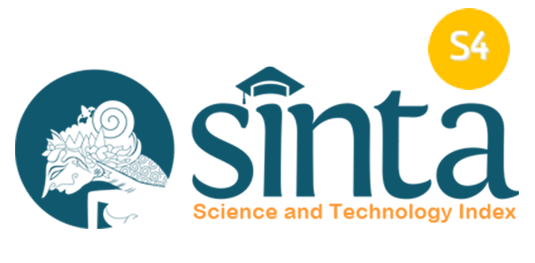The students mathematics motivation scale: a measure of intrinsic, extrinsic, and perceptions of mathematics
Abstract
Keywords
Full Text:
PDFReferences
Aspelin, J. (2012). How Do Relationships Influence Student Achievement? Understanding Student Performance from a General, Social Psychological Standpoint. International Studies in Sociology of Education, 22(1), 41–56.
Cleary, T. J., & Chen, P. P. (2009). Self-Regulation, Motivation, and Math Achievement in Middle School: Variations across Grade Level and Math Context. Journal of School Psychology, 47. 91 - 314.
Deci, E. L., & Ryan, R. M. (1985). Intrinsic Motivation and Self-Determination in Human Behavior. New York: Plenum Press.
Deci, E. L., & Ryan, R. M. (1991). A Motivational Approach to Self: Integration in Personality. In R. Dienstbier (Ed.), Nebraska Symposium on motivations Vol. 38. Perspective on Motivation (pp. 237-288) Lincoln, NE: University of Nebraska Press.
Fitrianti, H., & Nur, A. S. (2018). Structural Model External and Internal Factors that Influence Students’ Mathematical Learning Achievement. International Conference on Science and Technology (ICST 2018), (pp. 853–857).
Herges, R. R., Duffield, S., Martin, W., and Wageman, J. (2017). Motivation and Achievement of Middle School Mathematics Students, The Mathematics Educator 2017, Vol 26, No. 1. 83 - 106.
Hinton, P. R., McMurray, I., and Brownlow, C. (2014). SPSS Explained. US:Routledge
Michaelides, M. P., Brown, G. T. L., Eklof, H., and Papanastasiou, E. C. (2019). Motivational Profiles in TIMSS Mathematics: Exploring Student Clusters Across Countries and Time. Springer: Switzerland
Nurkarim, A. W., & Rifki, A. (2023). Pengembangan Perangkat Pembelajaran Kooperatif Tipe Two Stay-Two Stray dengan Pendekatan Problem Posing dan Media Pohon Matematika. Nuris Journal of Education and Islamic Studies, 3(1), 6–16. https://doi.org/10.52620/jeis.v3i1.27
Papanastasiou, C. (2000). Internal and External Factors Affecting Achievement in Mathematics: Some findings from TIMSS. Studies in educational evaluation, 26(1), 1–7.
Pintrich, P. R, Smith, D. A. F., Garcia, T, and McKeachie, W. J. (1991). A Manual for the Use of The Motivated Strategies for Learning Questionnaire (MSLQ). The Regents of The University Of Michigan: Michigan
Slameto. 2009. Belajar dan Faktor yang Mempengaruhinya. Jakarta: PT Rineka Cipta
Siregar, Syofian. (2012). Statistik Parametrik untuk Penelitian Kuantitatif. Jakarta: Bumi Aksara
Vallerand, R. J., Pelletier, L. G., Blais, M. R., Briere, N. M., Senecal, C., and Vallieres, E. F. (1992). The Academic Motivation Scale: A Measure of Intrinsic, Extrinsic, and Amotivation in Education. Educational and Psychological Measurement. Inc
Yunus, A. F., and Ali, W. Z. W. (2009). Motivation in the Learning of Mathematics. European Journal of Social Sciences – Volume 7, Number 4. 93 - 101.
DOI: https://doi.org/10.18860/ijtlm.v6i1.23610
Refbacks
- There are currently no refbacks.
Copyright (c) 2023 Arfi Wahyu Nurkarim

This work is licensed under a Creative Commons Attribution-NonCommercial-ShareAlike 4.0 International License.
Indexed by :
.png)
.jpg)
.png)

.jpg)


